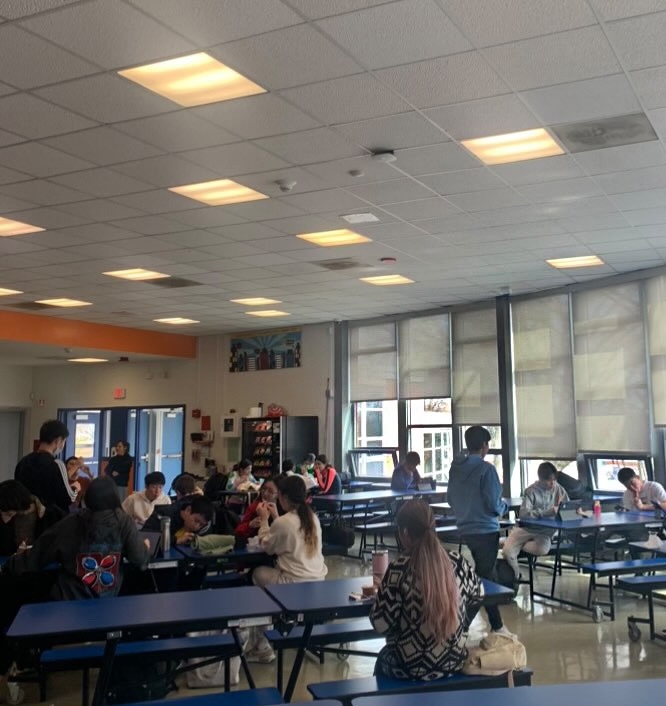There’s Always A Price To Pay: The Realities of Omitting Lunch
March 25, 2023
Breakfast is often referred to as the most important meal of the day. However, during the school day, lunch is the primary meal that gives students the required fuel to go on with their work. Despite the importance of lunch, some students still disregard it in their schedules in an attempt to academically surpass others.
Especially at Great Neck South High, which has a competitive atmosphere, students feel compelled to dedicate as much time as they can toward raising their GPAs. With only nine periods in a day, students find themselves choosing to meet with teachers for extra help, taking electives, or doing other academic activities rather than eating lunch. Although this may help students get into their dream college, it ultimately undermines their health and overall well-being.
FRESH N LEAN, “the largest organic prepared meal service in the United States with more than $100 million in revenue” according to Forbes, explains that skipping lunch can lead to anxiety, increased risk for nutrient deficiencies, and a decline in overall health. Furthermore, it states that “approximately 3 out of 4 people who skip meals fail to consume enough essential vitamins and minerals needed to stay healthy and energized.” For students who are continuously growing mentally and physically, it is important for them to treat their bodies with care.
Scheduling time for educational purposes rather than lunch is meant to help students do better in school; however, eating school lunch does that as well. According to Verywellfamily, a website run by certified physicians, school lunch has guidelines such as “bread products must be at least 50% whole grain” and “fruits and vegetables must be served every day”. This ensures that the school lunch is healthy and nutritious. Furthermore, Sean Patrick Corcoran, a professor at NYU Steinhardt School of Culture, Education, and Human Development, says, “I’ve seen a number of other rigorous studies that also find a connection between healthy eating and academic performance,” and “Students who eat regular, healthy meals are less likely to be tired, are more attentive in class, and retain more information.” Eating healthy allows students to be more productive, learn more, and potentially do better on tests/quizzes. As mentioned before, this can factor into the chances of students getting into their dream college as it provides them with an academic boost.
Aside from providing students with mental power, eating lunch allows students to have a break from schoolwork. The Learning Center, an online website of academic articles for UNC (University of North Carolina)-Chapel Hill students, explains that “effective breaks can help to reduce your stress levels so that you’re ready to re-focus when you return to your work.” As ipads have chargers, students get fuel from letting their brain rest and not overwhelming themselves with work.
Furthermore, between having to work in school and study for tests/quizzes and do homework at home, students may experience academic burnout which University of the People, a non-profit American University, defines as “a negative emotional, physical and mental reaction to prolonged study that results in exhaustion, frustration, lack of motivation and reduced ability in school.” It’s important to acknowledge that everyone has their limits, and there are consequences of going beyond or ignoring them. The University of the People lists symptoms of burnout including “incapability to meet important deadlines” and “lacking motivation to attend classes or start assignments.” Ultimately, by eating lunch and taking time for oneself, students can avoid these negative effects of burnout which interferes with one’s educational abilities.
Some students may say that they can simply eat snacks during class in order to obtain the benefits of eating and still obtain academic advantages. However, a snack is not a meal. “Meals for our purpose, contain a source of protein, veg, carbs if you’re eating them and fats. Snacks are anything that does not constitute this full combination” according to THRIVE Health Management, run by professionals dedicated to writing health articles. Snacks therefore don’t provide the same academic benefits that eating nutritional meals allow for.
If you strive to maximize your academic achievement, take a lunch period instead of another class.







